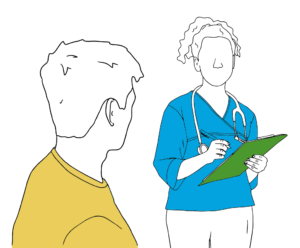ADDICTION TREATMENT FAQS
Detailed answers to our most frequently asked questions about our addiction treatment centers.
Detailed answers to our most frequently asked questions about our addiction treatment centers.

Yes, our center teams help patients apply for insurance.
If you are uninsured, BrightView is committed to ensuring you receive care. We will never turn anyone away, regardless of insurance status. BrightView offers flexible payment options and assistance programs to make treatment accessible to everyone. The cost of treatment without insurance is $400 a month.
At BrightView, we believe that everyone deserves access to treatment, regardless of their ability to pay. If you cannot pay, our team will work with you to find alternative treatment programs that may have access to additional resources and/or assistance programs. We strive to provide help to anyone who seeks it, with no barriers.
Addiction medicine identifies and treats people with disorders caused by or worsened by the use of addictive substances. These substances include nicotine, alcohol, opiates, stimulant drugs and marijuana. Addiction medicine specialists can help:
No. We have found that detox without therapy and social support does not lead to long-lasting recovery, so we do not offer detoxification as a stand-alone service. Therapy is an important part of the recovery process and helps with relapse prevention.
Suboxone is a brand name of a buprenorphine/naloxone medication. Other brand names include Sublocade, Brixadi, and Subutex. It is a medication commonly used to treat opioid addiction like methadone and naltrexone. A patient taking buprenorphine feels normal, not high, but their symptoms are reduced because their brain thinks it’s receiving the problem opioid. Suboxone also diminishes cravings. If cravings continue to be a problem, your doctor will adjust your medication to help reduce them. Suboxone is a pill that dissolves under the tongue. It should NOT be chewed or swallowed. The naloxone is added to prevent abuse and brings on withdrawal in people who abuse the buprenorphine by injecting it. Subutex® contains only buprenorphine. This form is prescribed if you should not take naloxone for any reason, like if you are allergic or pregnant. The pill is taken once a day. Over time, the dosing interval may continue as once a day or change to every other day.
No, we do not give Suboxone to a patient unless they are willing to participate in one of our comprehensive treatment programs.
The BrightView staff works with some of the best pain management specialists in the region as part of our addiction treatment options. We will work with those specialists to find an approach to managing your pain while trying to reduce and eventually eliminate your use of pain pills.
No. Buprenorphine (Suboxone) is not controlled the same way methadone is because it has a lower potential for abuse and is less dangerous. Prescriptions are given to patients based on their ongoing success and we can give the patient enough medication for days or even weeks at a time.
Only qualified doctors with the necessary DEA (Drug Enforcement Agency) identification numbers can start in-office treatment and provide prescriptions for ongoing medication. CSAT (Center for Substance Abuse Treatment) maintains a database to help patients find qualified physicians.
Suboxone comes in 2 mg and 8 mg strengths as sublingual (placed under the tongue to dissolve) tablets.
We can dispense Suboxone at most BrightView facilities. Suboxone is also available in most commercial pharmacies including most Walgreens, CVS and Kroger locations.
Please visit: suboxone information.
No. We do not treat anyone under the age of 18.